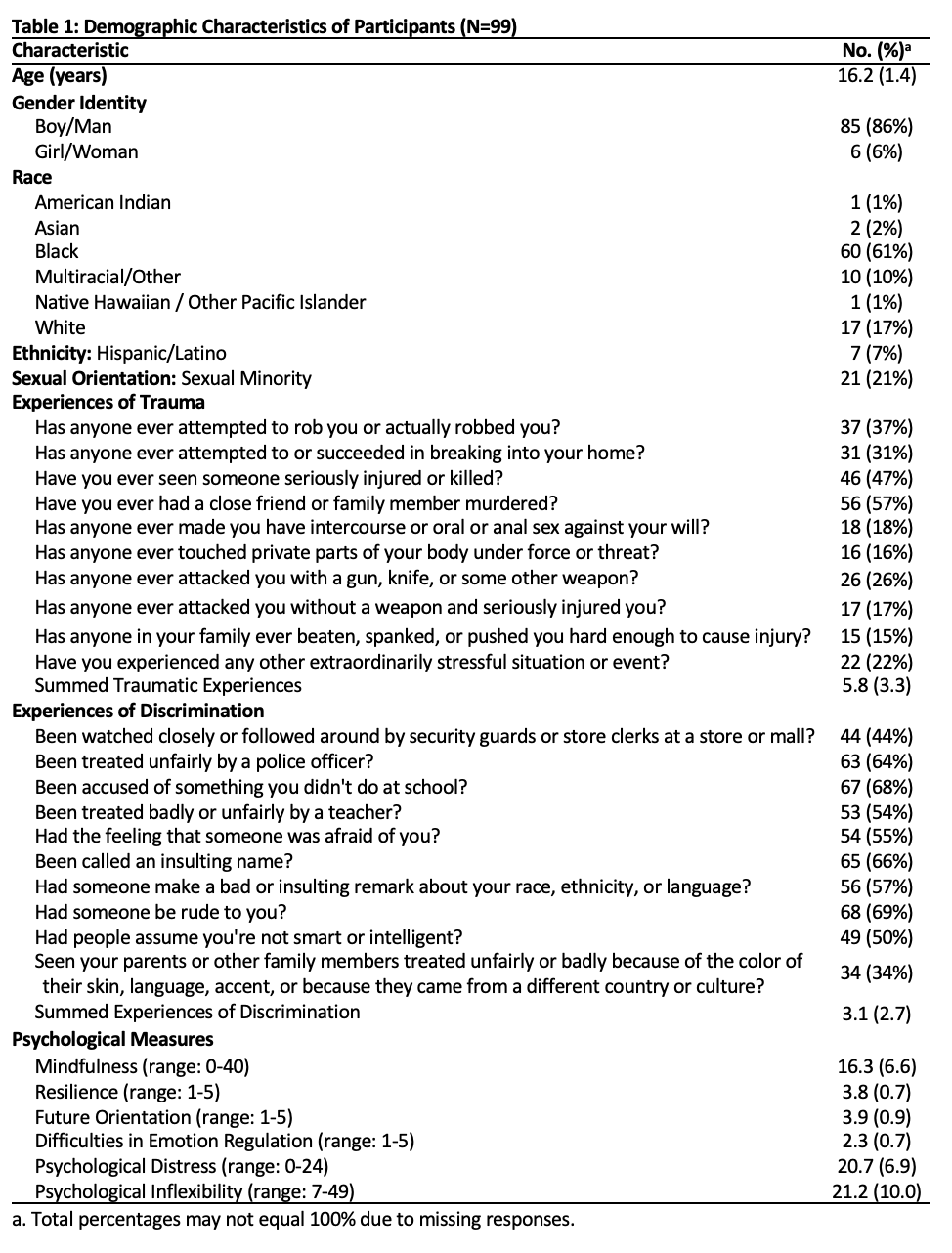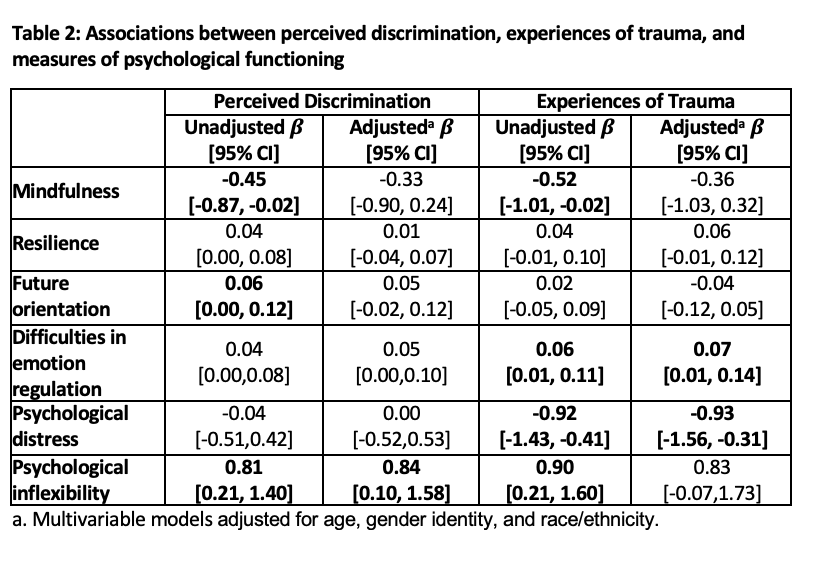Adolescent Medicine: General
Adolescent Medicine 3
512 - Perceived discrimination, experiences of trauma, and psychological functioning among juvenile court-involved youth
Sunday, April 30, 2023
3:30 PM - 6:00 PM ET
Poster Number: 512
Publication Number: 512.3
Publication Number: 512.3
Nicholas Szoko, UPMC Childrens Hospital of Pittsburgh, Pittsburgh, PA, United States; Breauna Franklin, University of Pittsburgh School of Medicine, Pittsburgh, PA, United States; Ebonie R.. Slade, UPMC Children's Hospital of Pittsburgh, McKeesport, PA, United States; Barbara Fuhrman, University of Pittsburgh School of Medicine, Pittsburgh, PA, United States; Courtney Murphy, University of Pittsburgh, Morgantown, WV, United States; Kimberly Booth, Allegheny County Juvenile Court, Pittsburgh, PA, United States; Elizabeth .. Miller, UPMC Children's Hospital of Pittsburgh, Pittsburgh, PA, United States

Nicholas Szoko, MD (he/him/his)
Adolescent Medicine Fellow
UPMC Childrens Hospital of Pittsburgh
Pittsburgh, Pennsylvania, United States
Presenting Author(s)
Background: Juvenile court-involved youth (JCIY) have unique health needs due to experiences of trauma, discrimination, and other structural inequities; however, our understanding of how these factors may impact psychological functioning continues to evolve.
Objective: We sought to explore relationships between perceived discrimination, experiences of trauma, and various measures of psychological functioning among a cohort of JCIY to inform tailored behavioral health services.
Design/Methods: JCIY enrolled in community-based monitoring programs completed cross-sectional surveys as part of an evaluation of a longitudinal mindfulness intervention. Surveys assessed perceived discrimination (10 items) and experiences of trauma (10 items). Dichotomous responses were summed across items. Psychological measures included: mindfulness (10 items), resilience (9 items), future orientation (7 items), difficulties in emotion regulation (18 items), psychological distress (6 items), and psychological inflexibility (7 items). Scores were summarized by calculating the sum (mindfulness, psychological inflexibility, psychological distress) or mean (resilience, future orientation, difficulties in emotion regulation) across Likert-type items. Demographics were summarized with means/standard deviations and frequencies/proportions. Multivariable linear regression models separately examined associations between perceived discrimination, experiences of trauma, and each psychological measure, adjusted for age, gender identity, and race/ethnicity.
Results: A total of 99 youth completed surveys. Mean age was 16.2 (SD: 1.4) years. The majority (n=85, 86%) identified as boys, and most (n=60, 61%) were Black. Perceived discrimination was common, and many reported exposure to trauma (Table 1). Greater perceived discrimination was significantly associated with higher psychological inflexibility (β: 0.84 [95%CI: 0.10, 1.58]). Experiences of trauma were significantly associated with lower psychological distress (β: -0.93 [95%CI: -1.56, -0.31]) and greater difficulties in emotion regulation (β: 0.07 [95%CI: 0.01, 0.14]). No significant relationships emerged between perceived discrimination, experiences of trauma, and other psychological measures (Table 2).
Conclusion(s): We demonstrate significant associations between perceived discrimination, experiences of trauma, and several key measures of psychological functioning among JCIY. Findings suggest that JCIY may adopt unique mechanisms of psychological coping and adaptation that require healing-centered approaches to address.


